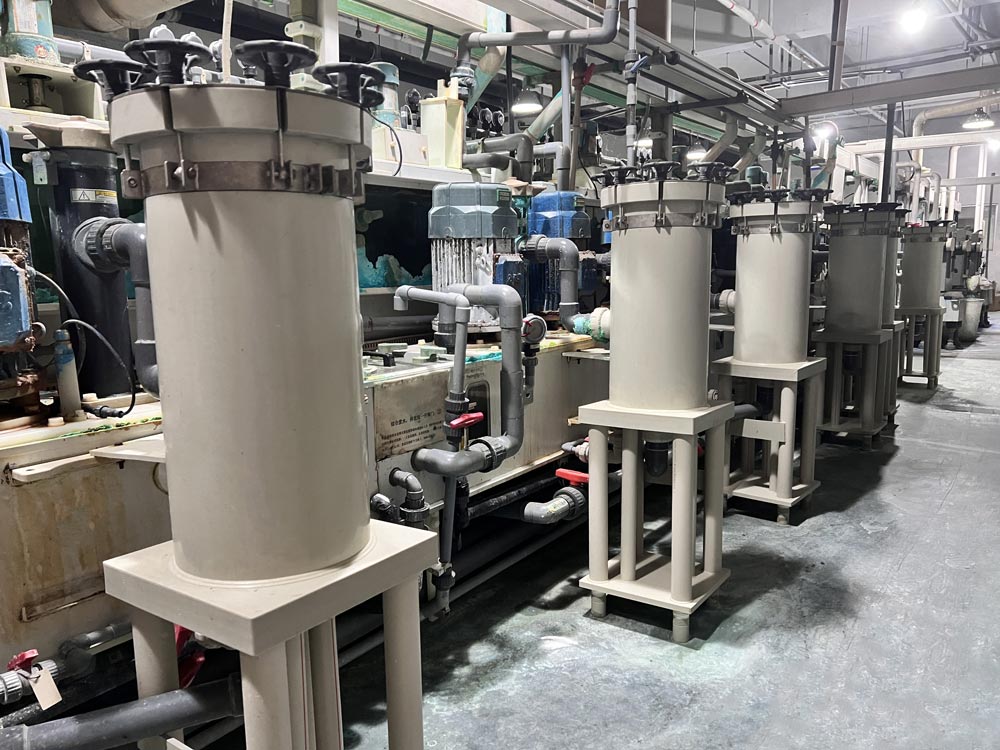# Electroplating Filter: Enhancing Efficiency and Purity in Metal Deposition Processes
Electroplating is a critical process in various industries, from automotive to electronics, where metal deposition is essential for enhancing the durability, conductivity, and aesthetic appeal of components. However, achieving high-quality electroplating results requires more than just the right chemicals and equipment. One often-overlooked yet vital component in this process is the electroplating filter.
## What is an Electroplating Filter?
An electroplating filter is a device designed to remove impurities and contaminants from the plating solution. These impurities can include particulate matter, oils, and other foreign substances that can compromise the quality of the metal deposition. By ensuring a clean and consistent plating solution, electroplating filters play a crucial role in maintaining the efficiency and purity of the electroplating process.
## The Importance of Filtration in Electroplating
Filtration is essential in electroplating for several reasons:
– **Improved Adhesion:** Contaminants in the plating solution can lead to poor adhesion of the metal layer, resulting in defects such as peeling or blistering. A high-quality filter ensures that the plating solution is free from these impurities, promoting better adhesion.
– **Enhanced Surface Finish:** Impurities can cause roughness and unevenness in the deposited metal layer. By removing these contaminants, filters help achieve a smoother and more uniform surface finish.
– **Extended Bath Life:** Contaminants can accelerate the degradation of the plating solution, leading to more frequent bath changes and increased costs. Effective filtration extends the life of the plating bath, reducing maintenance and operational expenses.
– **Consistent Quality:** Consistent filtration ensures that the plating solution remains stable over time, leading to more predictable and reliable results.
## Types of Electroplating Filters
There are several types of electroplating filters available, each suited to different applications and requirements:
– **Cartridge Filters:** These are disposable filters that are easy to replace and are ideal for removing fine particulate matter.
– **Bag Filters:** These are cost-effective and suitable for applications where larger particles need to be removed.
– **Depth Filters:** These filters are designed to trap contaminants throughout the depth of the filter media, making them effective for a wide range of particle sizes.
– **Membrane Filters:** These provide high-precision filtration and are often used in applications requiring extremely clean plating solutions.
## Choosing the Right Electroplating Filter
Selecting the appropriate filter for your electroplating process depends on several factors:
– **Type of Contaminants:** Identify the types of impurities present in your plating solution to choose a filter that can effectively remove them.
– **Flow Rate:** Ensure that the filter can handle the flow rate of your plating solution without causing a significant drop in pressure.
– **Filter Media:** Consider the material and pore size of the filter media to match the specific requirements of your application.
– **Maintenance:** Evaluate the ease of maintenance and replacement to minimize downtime and operational disruptions.
## Conclusion
In the world of electroplating, achieving high-quality results is paramount. An electroplating filter is an indispensable tool that ensures the purity and efficiency of the plating process. By removing contaminants and maintaining a stable plating solution, these filters contribute to improved adhesion, enhanced surface finish, extended bath life, and consistent quality. Investing in the right electroplating filter is a step toward achieving superior metal deposition and optimizing your electroplating operations.
Keyword: electroplating filter
